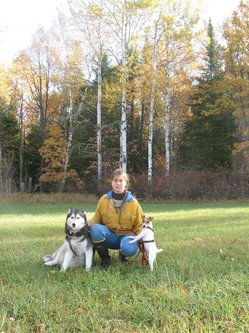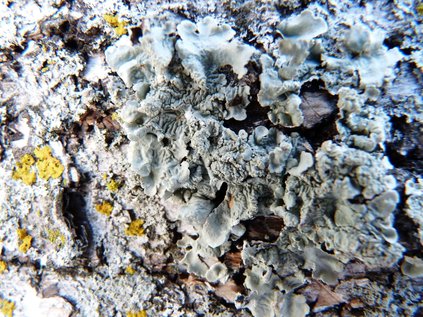Alethea Kenney, B.S., Doctorate in Traditional Naturopathy, Herbalist and Aromatherapist, D. Vet. Hom. (Diploma in veterinary homeopathy).
Natural Health Consulting for you, your livestock and your companion animals.

Alethea Kenney has a Bachelor of Science in Wildlife Science from Purdue University in West Lafayette, IN and a doctorate in Traditional Naturopathy, with a concentration in herbology. She is a member of the American Herbalist's Guild, the American Botanical Council, the National Center for Homeopathy and has an International Certification in Aromatherapy from the Pacific Institute of Aromatherapy. She completed the masters series in aromatherapy from Pacific Institute of Aromatherapy and applies this not only to educate clients in the benefits of essential oils but in the safe use of essential oils in animal husbandry. Please see Pacific Institute of Aromatherapy for more information. She is certified in Equine Iridology by Through the Eye International and is working on the Master Herbalist Diploma Program from Midwest School of Herbal Studies. She also has a Diploma in Veterinary Homeopathy from the British Institute of Homeopathy.
She has extensively studied plants, including botany and plant identification and ecology, environmental science and wildlife management at Purdue, including a graduate level course in prairie management. She has experience restoring prairie and related habitats. Her coursework at Purdue included forestry, silviculture, dendrology and forest recreation. Her background in wildlife, ecosystems and plants has enabled her to teach people about how medicinal plants fit into the world and can enrich people's lives. She has 16 years of experience gathering medicinal and edible plants throughout the Midwest and brings this first hand knowledge to her classes. By using herbs, diet and lifestyle changes, people can learn to live healthier lives more in tune with the planet and their own spirituality. She has hands-on experience teaching people through workshops and classes to use herbs and diet to reach and maintain a healthier lifestyle.
She offers iridology exams, a non-invasive study of the iris of the eye as it relates to health. The use of homeopathy to restore balance in the body is another facet of traditional naturopathy that she has studied. She uses classical homeopathy as it relates to both humans and animals. Her studies in reflexology, acupressure and massage give her even more alternative therapies to recommend when working with clients. Her experiences as veterinary assistant, animal control officer, herbalist, traditional naturopath and shepherdess have given her real-life experience in using nutrition to maintain a wide range of animals and seeing the value in natural therapies for returning animals, as well as people, to health.
Because she lives and works on an organic farm, raising registered Icelandic sheep, dairy goats and other livestock and animals, she also uses natural methods of maintaining and restoring health for livestock. Her extensive studies on animal nutritional needs and minerals as they relate to health allow her to recommend therapies for livestock and farm situations to restore balance to the whole herd, from the ground up.
She has extensively studied plants, including botany and plant identification and ecology, environmental science and wildlife management at Purdue, including a graduate level course in prairie management. She has experience restoring prairie and related habitats. Her coursework at Purdue included forestry, silviculture, dendrology and forest recreation. Her background in wildlife, ecosystems and plants has enabled her to teach people about how medicinal plants fit into the world and can enrich people's lives. She has 16 years of experience gathering medicinal and edible plants throughout the Midwest and brings this first hand knowledge to her classes. By using herbs, diet and lifestyle changes, people can learn to live healthier lives more in tune with the planet and their own spirituality. She has hands-on experience teaching people through workshops and classes to use herbs and diet to reach and maintain a healthier lifestyle.
She offers iridology exams, a non-invasive study of the iris of the eye as it relates to health. The use of homeopathy to restore balance in the body is another facet of traditional naturopathy that she has studied. She uses classical homeopathy as it relates to both humans and animals. Her studies in reflexology, acupressure and massage give her even more alternative therapies to recommend when working with clients. Her experiences as veterinary assistant, animal control officer, herbalist, traditional naturopath and shepherdess have given her real-life experience in using nutrition to maintain a wide range of animals and seeing the value in natural therapies for returning animals, as well as people, to health.
Because she lives and works on an organic farm, raising registered Icelandic sheep, dairy goats and other livestock and animals, she also uses natural methods of maintaining and restoring health for livestock. Her extensive studies on animal nutritional needs and minerals as they relate to health allow her to recommend therapies for livestock and farm situations to restore balance to the whole herd, from the ground up.
Natural health consulting
Traditional Naturopathy involves helping people to make healthy lifestyle and nutrition choices, empowering them to help themselves attain true health. In naturopathy, the whole person is taken into account in all recommendations. Physical, spiritual and emotional health are seen as equally important to well-being and clients are given educational choices about the whole person (sometimes called holistic). Each person is treated with respect, most appointments with clients last at least an hour, giving the practitioner and client time to understand each other and elaborate on suggestions for healthy changes that the client can incorporate into his/her life. The goal of a naturopath is to empower the client to make changes, the naturopath must be able to understand how a client lives and what nutritional and lifestyle adjustments that client is able and willing to make. Good health can be seen as a life in balance, when some part of that life becomes out of balance (through poor nutrition, lack of exercise, injury or emotional trauma) a person manifests an imbalance or disease as a symptom that can be a clue as to what needs to be changed to bring balance back to the person. A naturopath can provide educational resources to empower the client to make these changes, become healthier and then maintain that health for a fulfilling life.
Many people value their animals as companions and members of the family. The health of their companions is sometimes as important to them as their own health. More and more health consulting involves ways to improve the life and health of animals and naturopaths with the right education and experience can help educate and empower clients to make nutritional and other changes to improve the lives of their companion animals also.
Naturopaths use education as a tool to put health into the hands of the client, they do not diagnose diseases, prescribe medications or treat ailments, in either people or animals. Instead, they work with the client to educate the client about nutrition and how this relates to health and disease, herbs and how they have been traditionally used to return balance to the body and other therapies and their uses. Each client must decide in what ways they will live their lives to the fullest, the naturopath is there to give them the tools they need to succeed.
Many people value their animals as companions and members of the family. The health of their companions is sometimes as important to them as their own health. More and more health consulting involves ways to improve the life and health of animals and naturopaths with the right education and experience can help educate and empower clients to make nutritional and other changes to improve the lives of their companion animals also.
Naturopaths use education as a tool to put health into the hands of the client, they do not diagnose diseases, prescribe medications or treat ailments, in either people or animals. Instead, they work with the client to educate the client about nutrition and how this relates to health and disease, herbs and how they have been traditionally used to return balance to the body and other therapies and their uses. Each client must decide in what ways they will live their lives to the fullest, the naturopath is there to give them the tools they need to succeed.

